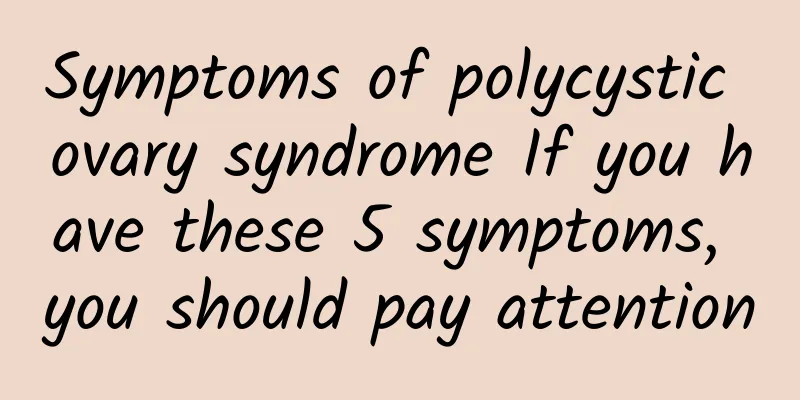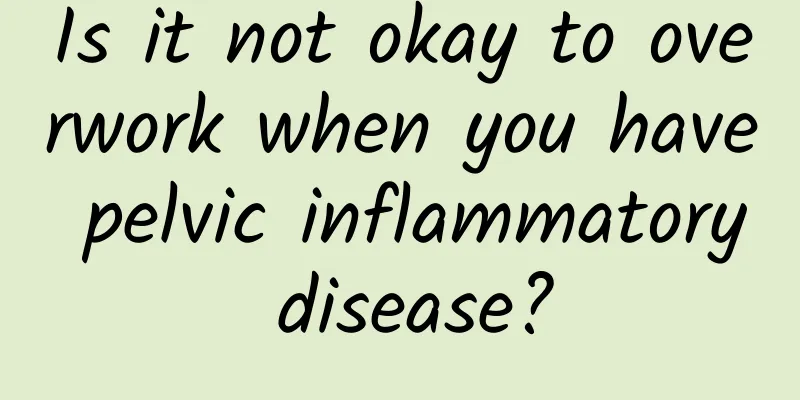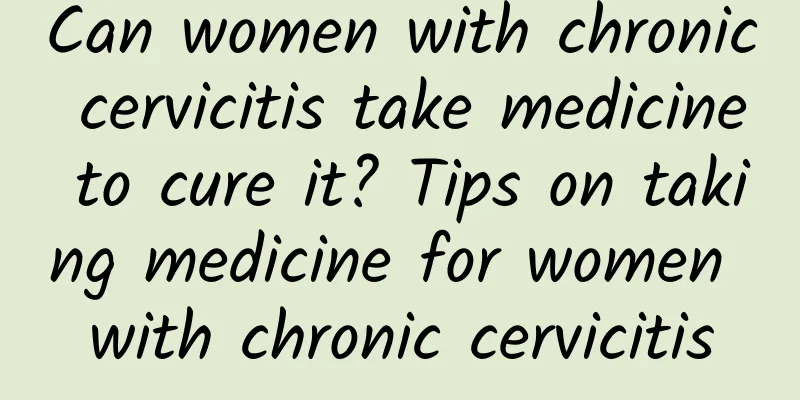Symptoms of polycystic ovary syndrome If you have these 5 symptoms, you should pay attention

|
Polycystic ovary syndrome is related to the metabolic stability level of hormones in women. Most women have long-term problems with the development of follicles since puberty, which is mainly manifested in normal ovulation of follicles. The accumulation of follicles will cause disorders in hormone metabolism, and the symptoms of polycystic ovary syndrome will appear. In other words, there is no need to go to the hospital in the early stages. Most women can check themselves according to the symptoms of polycystic ovary syndrome. Let’s take a look at the symptoms of polycystic ovary syndrome . Symptoms of PCOS 1. Abnormal menstruation: Women with polycystic ovary syndrome will have very little menstruation, or even amenorrhea. Some patients will experience functional uterine bleeding, while others will have a very long menstrual period. Some women cannot stop menstruating at all, and the menstrual flow is very heavy, which can cause symptoms such as anemia. Severe patients will have aggravated dysmenorrhea. This situation often occurs during adolescence. 2. Conception for infertile women is mainly the combination of egg and sperm, but for patients with polycystic ovary, the discharge of eggs is hindered due to the obstruction of ovarian cysts, and they cannot ovulate normally, and thus cannot combine with sperm, making it impossible for women to conceive. 3. Skin changes. Polycystic ovary disease can lead to endocrine disorders, which can cause skin changes, such as acne, etc. It may also lead to excessive oil secretion on the face, which can cause acne and pimples. If not treated in time, pus will occur. 4. Excessive hair growth. Estrogen is an important factor affecting female characteristics. In daily life, hair growth and density are mostly caused by unstable and high estrogen levels. Polycystic ovary patients have too little estrogen secretion, so they show more masculine characteristics, such as a rough voice, thick hair, Adam's apple, etc. 5. Obesity. As you get older, you may find that you are getting heavier. For some people, if they have the above symptoms since puberty, and they are mostly concentrated in the upper part of the body, you should consider the possibility of polycystic ovary syndrome and get checked in time. |
<<: Treatment of polycystic ovary syndrome Different treatments are chosen for different conditions
>>: Chocolate cysts: a terrifying time bomb
Recommend
Briefly describe the symptoms of acute pelvic inflammatory disease
Acute pelvic inflammatory disease refers to an ac...
What are the causes of irregular menstruation in women?
It is not uncommon for women to have irregular me...
Just can’t lose weight? It turns out that anemia affects metabolism.
Can’t lose weight no matter what you do? Be caref...
Thin endometrium, premature ovarian failure
Thin endometrium and premature ovarian failure ma...
What are the methods for checking irregular menstruation? 5 items can be checked
Irregular menstruation is a common disease in wom...
The most important hazards of abortion
Abortion is an operation that many women who have...
What is cervicitis?
There are many causes of cervicitis, so what are ...
Big battle to lose weight before marriage! 7-Day Slimming Soup to Clear the Stomach
Men should get married when they are old enough, ...
The most authoritative diet for people with hyperprolactinemia
Hyperprolactinemia is a very common disease that ...
What causes vaginitis?
Vaginitis is caused by a variety of factors, incl...
Experts introduce the symptoms of female menopausal syndrome
Menopause is a physiological process that every w...
Say no to obesity! The secret is that everyone can do it...
Chew thoroughly and swallow slowly! Dietary order...
Female doctor's sports beauty secrets: running + abdominal breathing
The benefits of exercise are not only burning fat...
Does drinking Chinese medicine during ovulation bleeding affect pregnancy?
Generally speaking, drinking Chinese medicine for...
Are adnexal cysts and ovarian cysts the same thing?
Are adnexal cysts and ovarian cysts the same thin...









